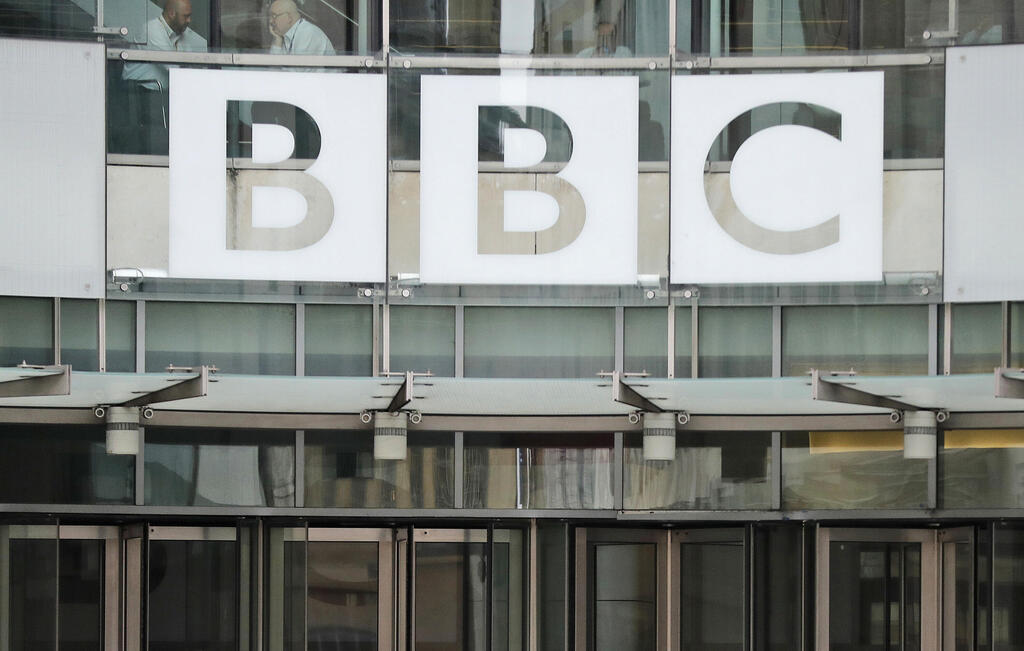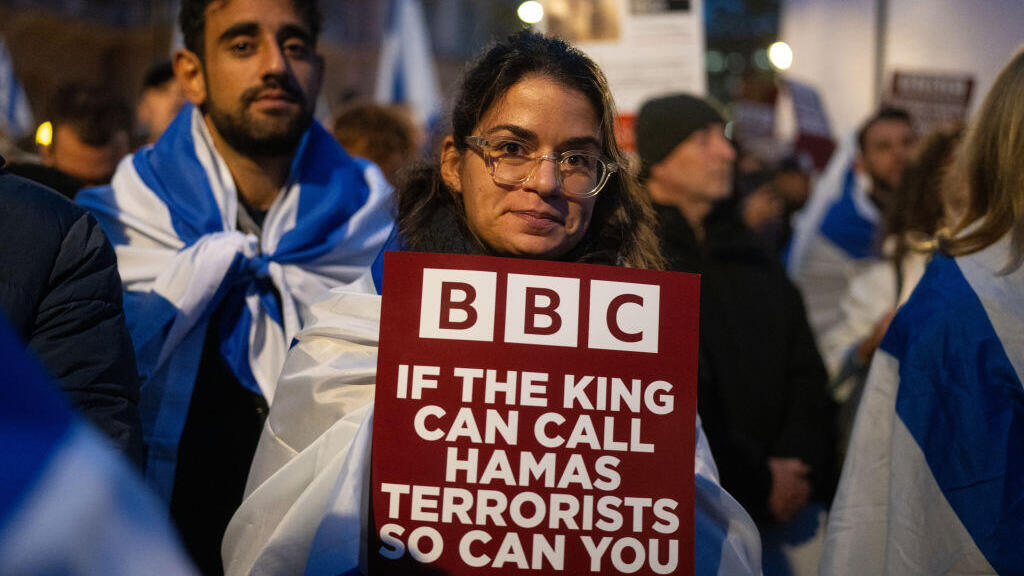Getting your Trinity Audio player ready...
The BBC breached its own editorial guidelines of impartiality, accuracy, editorial values, and public interest, more than 1,500 times during the height of the Israel-Hamas war, a report in the British The Telegraph published on Saturday said, citing analysis of four months of the broadcasters reporting on the war in Gaza, across platforms.
The research was led by British lawyer Trevor Asserson and a team of 20 other lawyers and 20 data scientists. They analyzed nine million words in BBC content on television, radio, online news, podcasts and social media, using AI.
They found the that term "terror organization" was attached to Hamas only 3.2% of the time. They also identified BBC News in Arabic as the most biased in its coverage.
According to the Telegraph, the research found that there was a "deeply worrying pattern of bias against Israel while repeated downplaying of Hamas terrorism.
BBC's reporting often relied on journalists who have expressed sympathy for Hamas in the past, even celebrating its actions, without notifying viewers of the fact.
Jeremy Bowen, the BBC’s international editor and Lyse Doucet, chief international correspondent were both named in the report as "downplaying the October 7 massacre or excusing the terror group. Bowen is accused of excusing Hamas’s terrorist activities and comparing Israel to Putin’s Russia.
podcasts produced by Bowen and Doucet between October and December 2023 showed an 84% anti-Israel/pro-Palestinian bias, with only one section out of 33 graded as pro-Israeli.
A spokesperson for the BBC doubted the methodology used in the analysis. "We don’t think coverage can be assessed solely by counting particular words divorced from context," the spokesman said while the public broadcaster said it would "carefully consider," the finding.
“The BBC’s responsibility as a public service broadcaster is to deliver news without bias,” Asserson said. “Our analysis reveals a significant deviation from this standard, especially in its reporting on the Israel-Hamas conflict, where the broadcaster showed a clear partiality towards one side. This bias was even more pronounced in the BBC’s Arabic content. “Such conduct not only breaches the BBC’s Royal Charter but also calls into question its suitability for continued public funding.”



